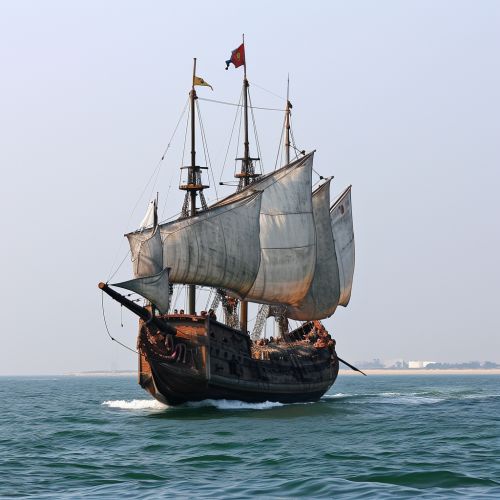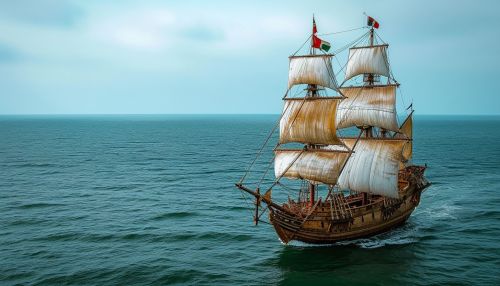Portuguese Empire
Origins and Early Expansion
The Portuguese Empire, also known as the Portuguese Overseas, was one of the largest and longest-lived empires in world history. It existed for almost six centuries, from the capture of Ceuta in 1415, to the handover of Portuguese Macau to China in 1999. The empire began in the 15th century, and from the early 16th century it stretched across the globe, with bases in North and South America, Africa, and Asia.


The first era of the Portuguese empire originated at the beginning of the Age of Discovery. The Portuguese explorers, under the patronage of Prince Henry the Navigator, discovered previously uncharted islands and established colonies along the African coast. This period was also marked by the discovery of a sea route to India in 1498 by Vasco da Gama, the discovery of Brazil in 1500 by Pedro Álvares Cabral, and the establishment of trading posts in India and China.
The Height of the Empire
During the 16th and 17th centuries, the Portuguese Empire expanded to its greatest extent. At its height, it was the largest empire in the world, with territories in Africa, Asia, and the Americas. The empire's wealth and power were largely derived from its control of the spice trade and the gold and diamond mines of Brazil.
The Portuguese established a network of trading posts and forts along the coasts of Africa, Asia, and the Americas. These included the cities of Goa in India, Malacca in Malaysia, and Salvador in Brazil. These cities became the centers of Portuguese trade and administration, and they played a crucial role in the expansion and maintenance of the empire.
Decline and Fall
The decline of the Portuguese Empire began in the late 16th century when the union of the Spanish and Portuguese crowns led to a decline in Portugal's power and influence. The empire was further weakened by the loss of its Asian colonies and the growth of rival European powers, particularly the Dutch Empire and the British Empire.
The final blow to the empire came in the 19th and 20th centuries, when the process of decolonization swept across the globe. Portugal was one of the last European countries to decolonize, with the independence of Angola and Mozambique in 1975 marking the end of the Portuguese colonial empire.
Legacy
The Portuguese Empire left a profound cultural and architectural influence across the globe, with a legacy that can be seen in the widespread use of the Portuguese language and the Roman Catholic religion. The empire also played a crucial role in the spread of European civilization during the Age of Discovery.
